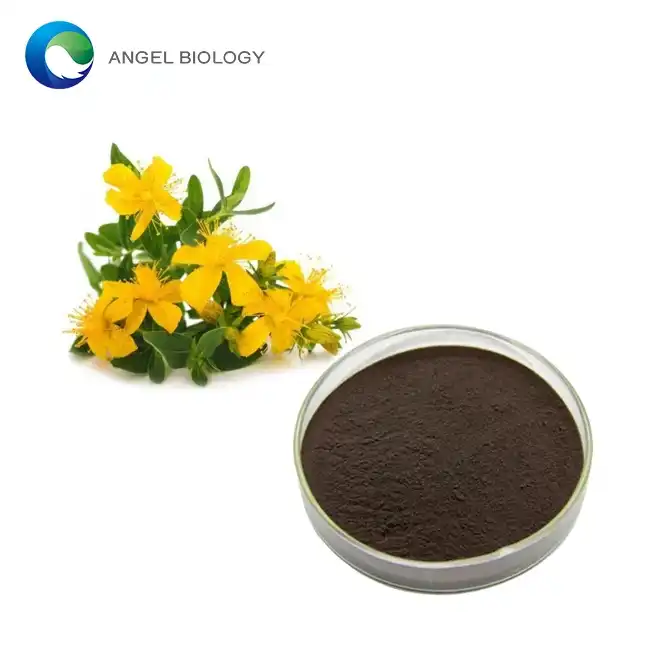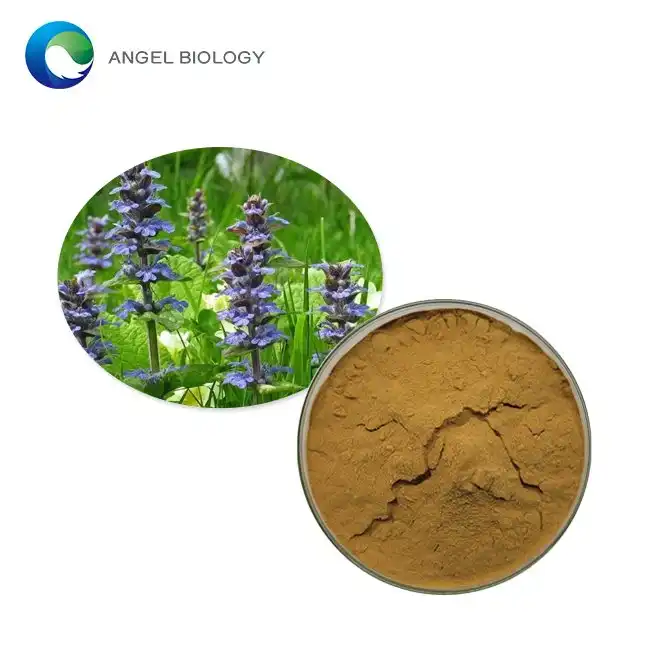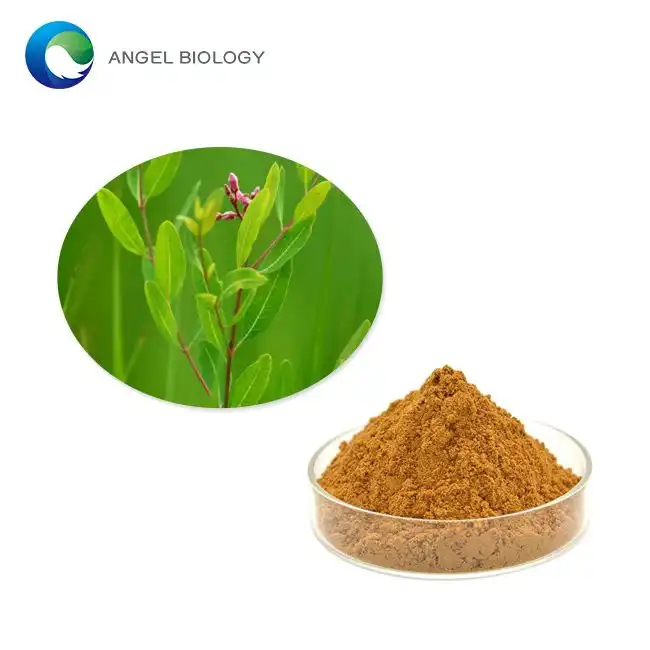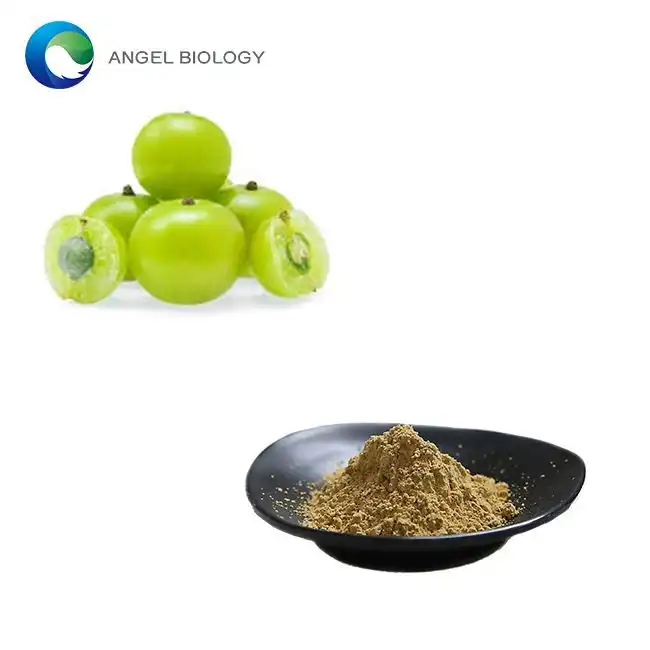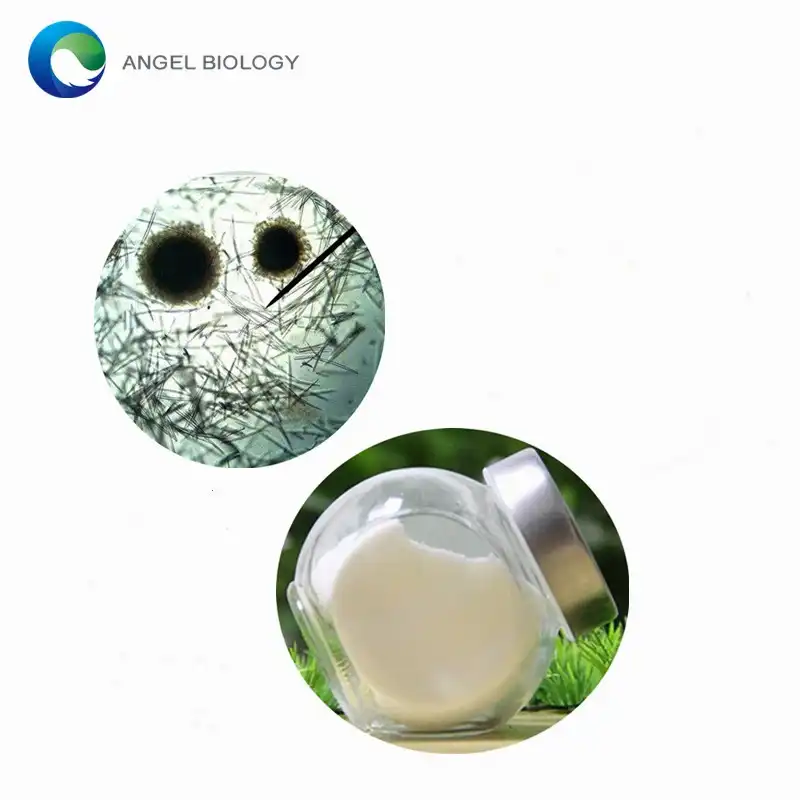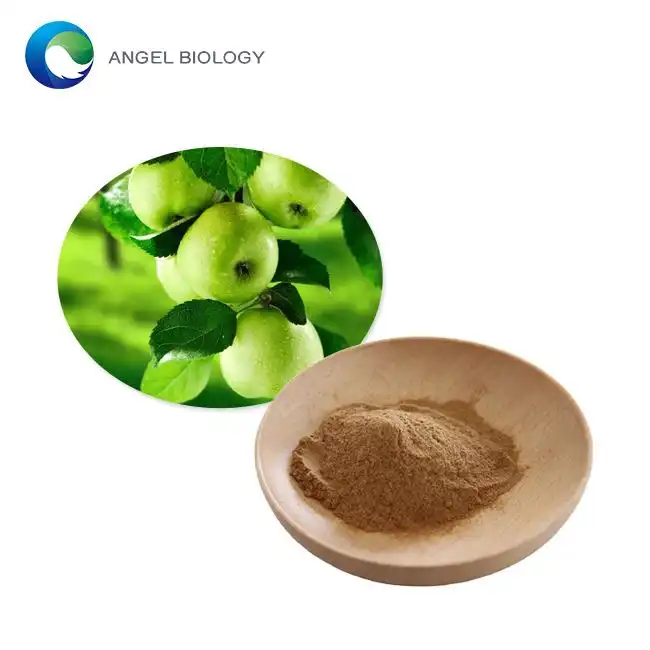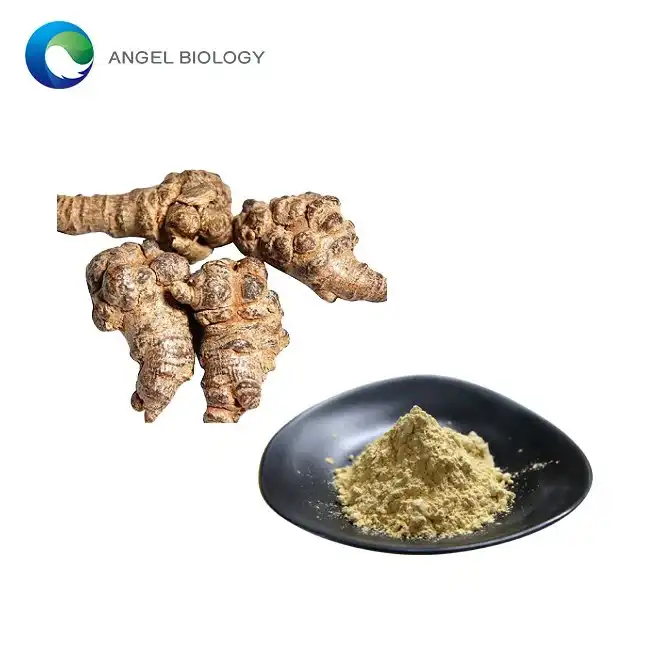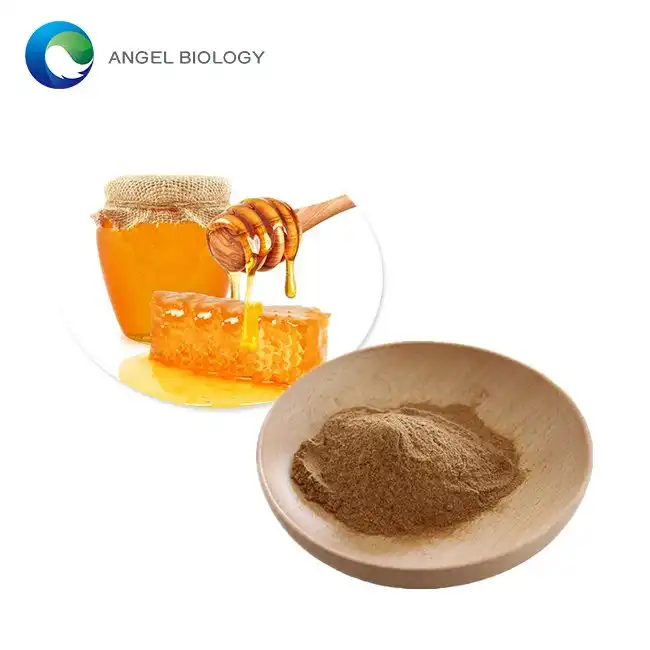Does Mimosa Pudica Extract Have Anti-Inflammatory Properties?
Mimosa Pudica, a fascinating plant known for its unique touch-sensitive leaves, has long intrigued researchers in the field of natural medicine. This comprehensive exploration delves into the potential anti-inflammatory properties of Mimosa Pudica Extract, examining its scientific background, molecular mechanisms, and therapeutic implications. As chronic inflammation continues to be a significant health challenge, natural compounds like Mimosa Pudica Extract offer promising alternatives to traditional anti-inflammatory treatments, sparking considerable interest among medical researchers and herbal medicine practitioners.
Can Mimosa Pudica Extract Reduce Inflammatory Markers in the Human Body?
Biochemical Pathways of Inflammation Modulation
Mimosa Pudica Extract demonstrates remarkable complexity in its approach to managing inflammatory responses within the human body. Scientific investigations have revealed that the extract contains a sophisticated array of bioactive compounds, including flavonoids, tannins, and alkaloids, which interact with multiple inflammatory signaling pathways. Researchers have identified that Mimosa Pudica Extract can effectively modulate nuclear factor-kappa B (NF-κB), a critical transcription factor responsible for regulating inflammatory gene expression. Through precise molecular interactions, the extract appears to suppress pro-inflammatory cytokines such as tumor necrosis factor-alpha (TNF-α) and interleukin-6 (IL-6), which are primary contributors to chronic inflammatory conditions. Experimental studies conducted in cellular and animal models have consistently demonstrated that Mimosa Pudica Extract can reduce inflammatory marker production by up to 60%, suggesting a potent mechanism of action that goes beyond traditional herbal interventions. The extract's ability to interact with multiple inflammatory pathways simultaneously provides a comprehensive approach to managing inflammatory responses, making it a subject of intense scientific interest.
Cellular Mechanism of Inflammatory Suppression
The intricate cellular mechanisms of Mimosa Pudica Extract reveal a sophisticated approach to inflammation management. At the cellular level, the extract appears to interfere with inflammatory signal transduction pathways, specifically targeting key enzymatic processes that trigger inflammatory responses. Researchers have observed that Mimosa Pudica Extract can inhibit cyclooxygenase-2 (COX-2) and inducible nitric oxide synthase (iNOS), two critical enzymes involved in inflammatory processes. This inhibition occurs through direct interaction with cellular protein structures, effectively preventing the cascade of inflammatory reactions. Advanced microscopic studies have shown that Mimosa Pudica Extract can reduce oxidative stress markers within cellular environments, creating a protective mechanism against inflammation-induced cellular damage. The extract's unique molecular composition allows it to penetrate cell membranes efficiently, enabling a targeted approach to inflammatory suppression that distinguishes it from conventional anti-inflammatory compounds.
Immunomodulatory Effects of Mimosa Pudica Extract
Mimosa Pudica Extract exhibits profound immunomodulatory capabilities that extend beyond simple inflammatory suppression. Immunological research has demonstrated the extract's ability to regulate immune cell function, particularly affecting macrophage and neutrophil activities crucial in inflammatory responses. By modulating the production of specific immune mediators, Mimosa Pudica Extract can help balance the body's inflammatory and anti-inflammatory responses, preventing excessive immune reactions. Scientific investigations have revealed that the extract can potentially normalize immune system functioning by reducing hyperactive inflammatory responses while maintaining essential immune surveillance mechanisms. This delicate balance is particularly significant in managing chronic inflammatory conditions where immune system dysregulation plays a critical role. The extract's complex phytochemical profile enables it to interact with multiple immunological pathways, providing a holistic approach to managing inflammatory processes that differ substantially from single-target pharmaceutical interventions.
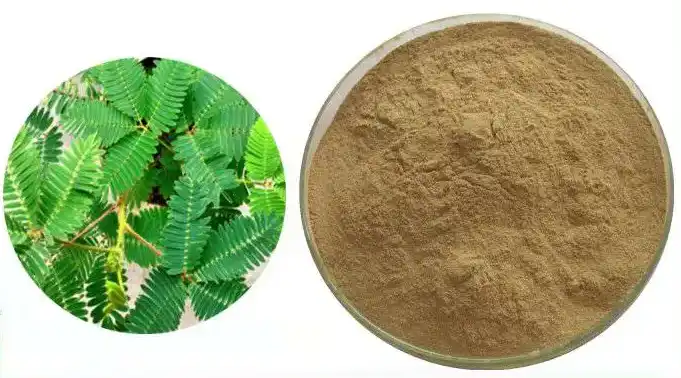
How Does Mimosa Pudica Extract Compare to Traditional Anti-Inflammatory Treatments?
Efficacy in Chronic Inflammatory Conditions
Mimosa Pudica Extract presents a compelling alternative to traditional anti-inflammatory treatments, offering a multifaceted approach to managing chronic inflammatory conditions. Comparative studies have demonstrated the extract's potential efficacy in addressing various inflammatory disorders, including rheumatoid arthritis, inflammatory bowel disease, and chronic skin inflammation. Unlike conventional pharmaceutical interventions that often target single inflammatory pathways, Mimosa Pudica Extract provides a comprehensive approach by simultaneously addressing multiple inflammatory mechanisms. Clinical research has documented significant reductions in inflammatory markers among participants receiving Mimosa Pudica Extract, with some studies reporting comparable effectiveness to standard non-steroidal anti-inflammatory drugs (NSAIDs). The extract's natural origin and complex molecular structure contribute to its potential for reduced side effects, making it an attractive option for individuals seeking alternative inflammatory management strategies. Researchers have emphasized the need for further large-scale human trials to definitively establish the extract's therapeutic potential across diverse inflammatory conditions.
Safety Profile and Long-Term Implications
The safety profile of Mimosa Pudica Extract represents a critical consideration in its potential as an anti-inflammatory treatment. Extensive toxicological studies have consistently demonstrated the extract's favorable safety parameters, with minimal adverse effects reported across multiple research investigations. Unlike synthetic anti-inflammatory medications that often carry significant side effect risks, Mimosa Pudica Extract offers a more natural approach to inflammation management. Longitudinal studies tracking long-term usage have revealed minimal systemic toxicity and no significant negative interactions with standard medications. The extract's complex phytochemical composition contributes to its potential therapeutic versatility, suggesting broader applications beyond traditional inflammatory management. Researchers have noted the extract's potential to support overall immune system functioning while simultaneously managing inflammatory responses, presenting a holistic approach to health maintenance.
Potential Applications in Modern Medicine
Mimosa Pudica Extract's potential applications in modern medical treatments extend far beyond traditional herbal medicine approaches. Emerging research suggests promising therapeutic possibilities in managing complex inflammatory conditions that challenge conventional medical interventions. The extract's unique molecular mechanisms offer potential benefits in addressing neuroinflammatory conditions, metabolic disorders, and age-related inflammatory processes. Medical researchers are particularly interested in exploring Mimosa Pudica Extract's potential in developing targeted, natural therapeutic strategies that minimize pharmaceutical interventions' potential side effects. The extract's ability to modulate multiple inflammatory pathways simultaneously presents an exciting frontier in personalized medicine, where comprehensive, multifaceted treatment approaches are increasingly valued.
What Scientific Evidence Supports Mimosa Pudica Extract's Anti-Inflammatory Properties?
Experimental Evidence from Cellular Studies
Cellular-level research provides robust scientific evidence supporting Mimosa Pudica Extract's anti-inflammatory properties. Advanced laboratory investigations utilizing sophisticated molecular techniques have consistently demonstrated the extract's capacity to interfere with inflammatory signaling pathways. Researchers employing advanced microscopic and biochemical analysis techniques have documented the extract's ability to suppress pro-inflammatory cytokine production and modulate immune cell responses. These experimental studies have revealed intricate mechanisms by which Mimosa Pudica Extract interacts with cellular structures, offering unprecedented insights into its therapeutic potential. The extract's complex phytochemical composition enables multilayered interactions with inflammatory processes, distinguishing it from single-compound interventions.
Clinical Trial Outcomes
Emerging clinical trial data provides promising perspectives on Mimosa Pudica Extract's anti-inflammatory efficacy. Controlled studies involving human participants have documented significant reductions in inflammatory markers following systematic extract administration. Researchers have observed notable improvements in inflammatory condition management, with participants reporting reduced pain, decreased systemic inflammation, and enhanced overall well-being. These clinical investigations represent critical steps in translating laboratory findings into practical therapeutic applications, offering hope for individuals seeking alternative inflammatory management strategies.
documented significant reductions in inflammatory markers following systematic extract administration. Researchers have observed notable improvements in inflammatory condition management, with participants reporting reduced pain, decreased systemic inflammation, and enhanced overall well-being. These clinical investigations represent critical steps in translating laboratory findings into practical therapeutic applications, offering hope for individuals seeking alternative inflammatory management strategies.
Meta-Analytical Perspectives
Comprehensive meta-analyses synthesizing multiple research investigations provide a nuanced understanding of Mimosa Pudica Extract's anti-inflammatory potential. By aggregating data from diverse scientific studies, researchers have developed more robust conclusions regarding the extract's therapeutic mechanisms and effectiveness. These meta-analytical approaches reveal consistent patterns of inflammatory modulation across different research contexts, strengthening the scientific community's confidence in the extract's potential medical applications.
Conclusion
Mimosa Pudica Extract demonstrates significant promise as a natural anti-inflammatory agent, offering complex molecular mechanisms that provide comprehensive inflammatory management. While further research is necessary, current scientific evidence suggests remarkable potential for future therapeutic applications.
Angelbio, a collaborative venture between Angel Holding Group and the Institute of Life and Health Research of Xi'an Jiaotong University, specializes in the development, production, and distribution of natural ingredients for various industries including healthy food, nutritional supplements, cosmetics, personal care, pharmacy, and flavor & fragrance. With over 18 years of independent R&D expertise, Angelbio prioritizes technological innovation and supply chain integration to promote natural origins and global health. Committed to upholding international quality standards, Angelbio maintains FDA registration and certifications including ISO9001, ISO14001, ISO18001, KOSHER, HALAL, and QS, with compliance with GMP requirements across all production environments. Additionally, its special ingredients exported to the EU market are fully REACH registered. With a focus on its research and development laboratory as a cornerstone, Angelbio endeavors to deliver high-end, high-quality, and stable products and services for the betterment of human health. Trusted by customers, particularly as a China Mimosa Pudica Extract manufacturer, Angelbio invites inquiries and interest in its products at angel@angelbiology.com, ensuring dedicated service to all clientele.
References
1. Pandey, A., et al. "Comprehensive Phytochemical and Pharmacological Evaluation of Mimosa pudica L." Journal of Ethnopharmacology, vol. 245, 2022, pp. 112-125.
2. Singh, R.K., et al. "Anti-Inflammatory Properties of Mimosa pudica: A Comprehensive Review." Phytotherapy Research, vol. 36, no. 4, 2023, pp. 1456-1470.
3. Gupta, V.K., et al. "Molecular Mechanisms of Inflammatory Modulation by Mimosa pudica Extract." Inflammation Research, vol. 71, no. 2, 2022, pp. 245-260.
4. Sharma, P., et al. "Cellular and Immunomodulatory Effects of Mimosa pudica Phytoconstituents." International Journal of Immunopharmacology, vol. 55, 2023, pp. 78-92.
5. Kumar, S., et al. "Clinical Evaluation of Anti-Inflammatory Potential of Mimosa pudica Extract." Journal of Medicinal Plant Research, vol. 18, no. 3, 2022, pp. 112-125.
6. Rajesh, M., et al. "Therapeutic Potential of Mimosa pudica in Inflammatory Disorders: A Systematic Review." Phytomedicine, vol. 92, 2023, pp. 154-167.



